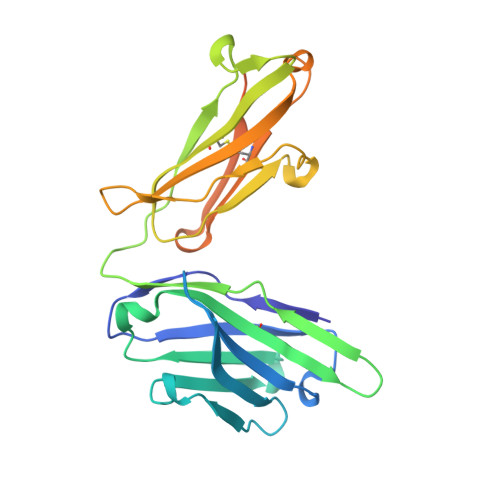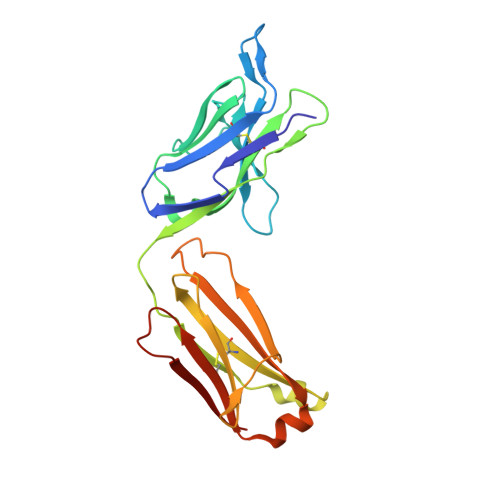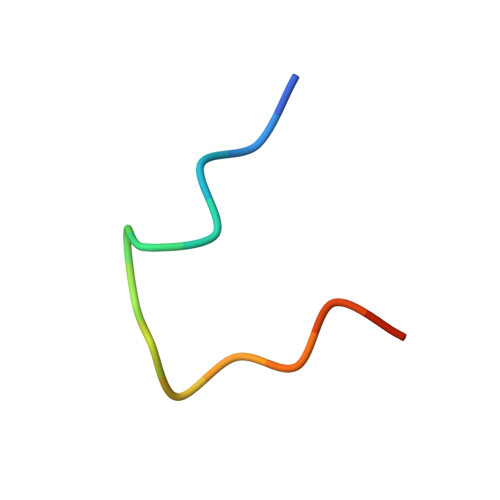Vaccination in a humanized mouse model elicits highly protective PfCSP-targeting anti-malarial antibodies.
Kratochvil, S., Shen, C.H., Lin, Y.C., Xu, K., Nair, U., Da Silva Pereira, L., Tripathi, P., Arnold, J., Chuang, G.Y., Melzi, E., Schon, A., Zhang, B., Dillon, M., Bonilla, B., Flynn, B.J., Kirsch, K.H., Kisalu, N.K., Kiyuka, P.K., Liu, T., Ou, L., Pancera, M., Rawi, R., Reveiz, M., Seignon, K., Wang, L.T., Waring, M.T., Warner, J., Yang, Y., Francica, J.R., Idris, A.H., Seder, R.A., Kwong, P.D., Batista, F.D.(2021) Immunity 54: 2859
- PubMed: 34788599
- DOI: https://doi.org/10.1016/j.immuni.2021.10.017
- Primary Citation of Related Structures:
7LKB, 7LKG, 7RAJ, 7RCS, 7RD3, 7RD4, 7RD9, 7RDA - PubMed Abstract:
Repeat antigens, such as the Plasmodium falciparum circumsporozoite protein (PfCSP), use both sequence degeneracy and structural diversity to evade the immune response. A few PfCSP-directed antibodies have been identified that are effective at preventing malaria infection, including CIS43, but how these repeat-targeting antibodies might be improved has been unclear. Here, we engineered a humanized mouse model in which B cells expressed inferred human germline CIS43 (iGL-CIS43) B cell receptors and used both vaccination and bioinformatic analysis to obtain variant CIS43 antibodies with improved protective capacity. One such antibody, iGL-CIS43.D3, was significantly more potent than the current best-in-class PfCSP-directed antibody. We found that vaccination with a junctional epitope peptide was more effective than full-length PfCSP at recruiting iGL-CIS43 B cells to germinal centers. Structure-function analysis revealed multiple somatic hypermutations that combinatorically improved protection. This mouse model can thus be used to understand vaccine immunogens and to develop highly potent anti-malarial antibodies.
- The Ragon Institute of Massachusetts General Hospital, Massachusetts Institute of Technology and Harvard University, Cambridge, MA, USA.
Organizational Affiliation:


















